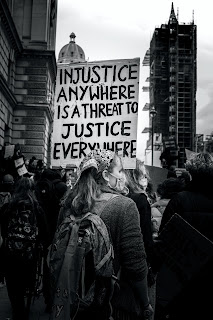Day 30 – Bringing intersectionality into social justice informed clinical education
Day 30 - Today I’ve been thinking about returning to teaching and about readings students might find useful. I have particularly liked this article on “doing intersectionality” (Brinkman & Donohue, 2020). I really like the idea of thinking about a social justice approach through an intersectional lens. Brinkman and Donohue say,
Intersectionality theory offers a framework for social justice oriented clinical training as it addresses the cultural and interpersonal domains of social identities, it also provides an analytical tool for examining the structural (institutional structures) and disciplinary (organizational practices) domains. (p.110)
The propose the idea of “doing intersectionality” as a way of resisting formulaic templates for thinking about clients in specific ways and hope that this approach will instead offer “a dynamic, relational, contextualized practice rather than a generalized theoretical framework that can be learned abstractly and then applied to any situation” (p. 110)
As we understand it, intersectionality is a way of being in relation to clients that encompasses affect and action as well as thought. It is an awareness of both the particularities of identities (who I am as a particular clinician in relation to a particular client) and the generalities of social locations, institutional structures, and practices of power. This “doing” means learning to think, feel, and respond both critically and dynamically within the specific, concrete, contextualized relationships that comprise clinical practice. (p. 110)
I also really like the idea of “centering Black feminism”- “With Collins (2000), we recognize that Black feminist thinkers and activists have generated a distinctive epistemological standpoint that uniquely illuminates the intersections of power, oppression, resistance, and collaboration (p. 110).
As I think about the ideas inherent in anti-oppressive practices, decolonization, disability justice, working at the borders and centering the margins, and liberation and social justice approaches to our work. I keep looking for ways to bring this work together in ways that won’t overwhelm students for whom this approach is new. Brinkman and Donohue end their essay this way,
Our approach focuses on teaching students to critically reflect on their own subjectivity so that it becomes explicitly relational, contextual, and dynamic. It is only in and through relationships that significant structural changes can occur to ensure greater equity and fairness, the core goals at the heart of social justice oriented clinical work. (p. 114)
Brinkman, B. G., & Donohue, P. (2020). Doing intersectionality in social justice oriented clinical training. Training and Education in Professional Psychology, 14(2), 109–115. https://doi-org.ezproxyles.flo.org/10.1037/tep0000274




Comments